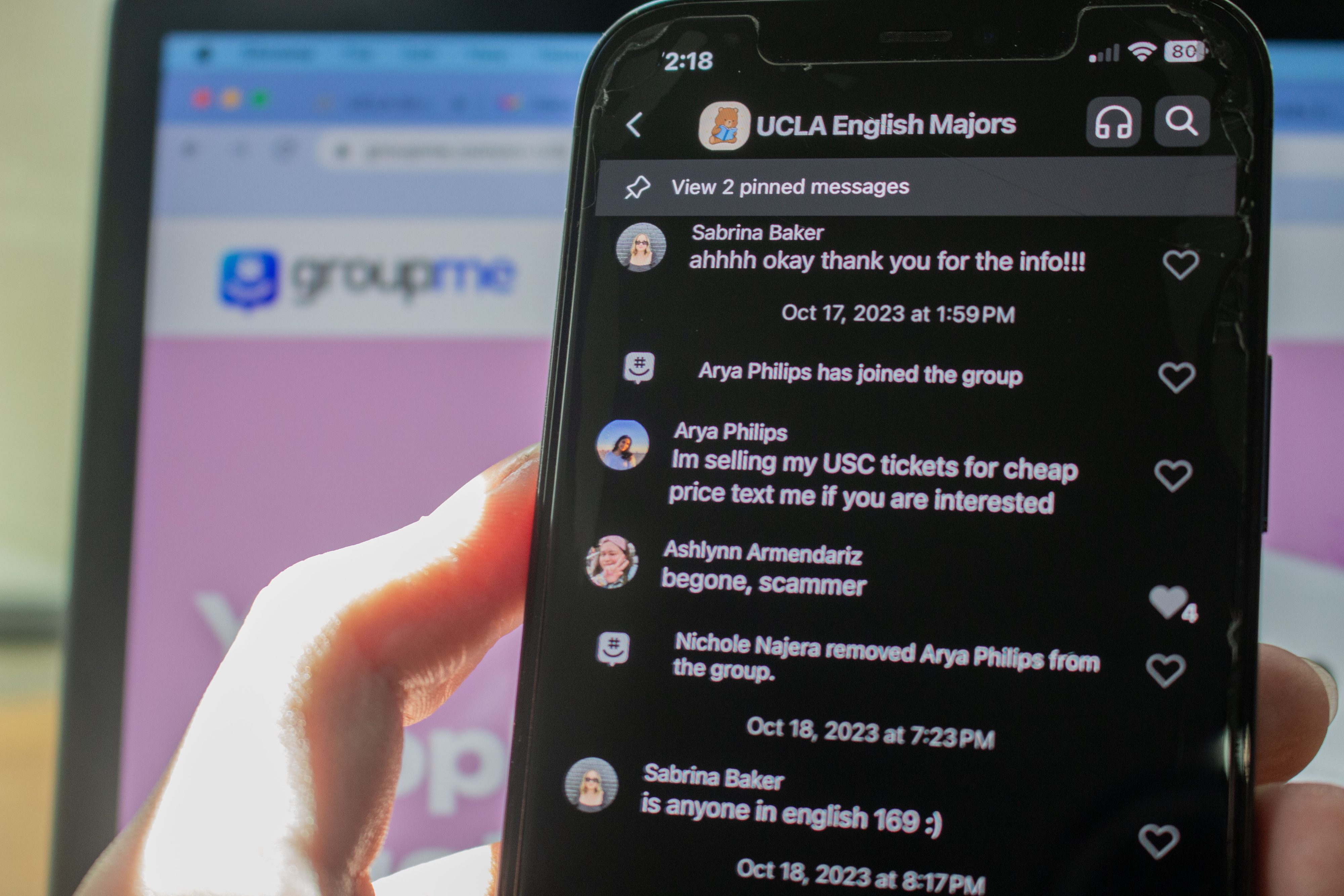Last year, an overwhelming trend emerged within GroupMe group messaging, as seemingly ordinary students with profile pictures and everyday names began to infiltrate chats, offering remarkably enticing deals. Often targeting current demand such as upcoming concerts or parking permits, this new type of scam has truly fine-tuned its approach, leaving many students vulnerable to financial exploitation or identity theft.
I myself have fallen subject to this deceivingly innocent trick. It started this summer when I, like many others, wanted a parking permit so I could bring my car and travel to Los Angeles with my friends. However, the lower-than-UCLA-admissions acceptance rate to obtain one of these coveted permits had left me scrambling. I scoured Reddit, trying to find an alternate solution when a GroupMe message answered my prayers.
An individual had responded in the Crafting for Cancer club GroupMe chat that he would be selling a parking permit for a fraction of the price. While texting, I initially proceeded with caution; he seemed polite and extremely generous. I noticed my walls starting to fall as he sent screenshots and other signs of proof. I was preparing to wire the money to him until I saw his Venmo username. A name that was far from the name he originally provided — leading to immediate suspicion.
I sent the message transactions to my friend, and she noticed the screenshots were edited and his grammar was fairly poor. I decided to question him, and that’s when the conversation took a turn for the worse. This is when the lies became more unbelievable; he told me he was indebted to a friend so he was providing me with his friend’s Venmo to send the money to, offering me the permit for the entire year in exchange. His friend’s anger escalated as he began texting in all-capitalized letters and getting upset that I was not paying yet. I ended up blocking him, but I learned a lot that day. These scams have truly evolved; the scammer had sent me BruinCard photos, screenshots and a detailed student-life profile, but still turned out to be fake.
It is becoming more important that students don’t make large purchases with people on GroupMe. The wholeheartedness of the club I was in made me believe this clear scam tactic in the first place. This can happen within any organized group. Fortunately, a lot of clubs are taking precautions against this from happening.
Derrick Phu, a second-year biology student and co-president of Pickleballers at UCLA, also had an issue with these scammers in his club’s group chat. “When the GroupMe scammers come into the chat, it is very annoying and very interruptive because we use it to create pickleball events and when people mention ‘Oh, we have this special writing job’ or ‘Hit us up, we are selling these tickets,’ it is very disruptive,” he said. “It disturbs the flow, and sometimes it will lead to some people being scammed.”
To help combat this, Phu took to the internet, did some research and found the perfect solution. “What I found online was that a lot of people were able to put a password. People basically request to join the chat by answering a question. It could be very basic, such as ‘What sport does this club play?’ If they put anything besides ‘pickleball,’ we immediately know they’re a bot, and we won’t accept them into the chat; this kills a lot of the bots.”
When the leaders of group chats take this role of handling the scam attempts, it makes it easier and safer for the club or class members. However, the majority of the time, it is up to the students to stay vigilant and be wary of exaggerated deals and fake pictures of proof.
—
Featured photo by Martin Herrera/BruinLife

